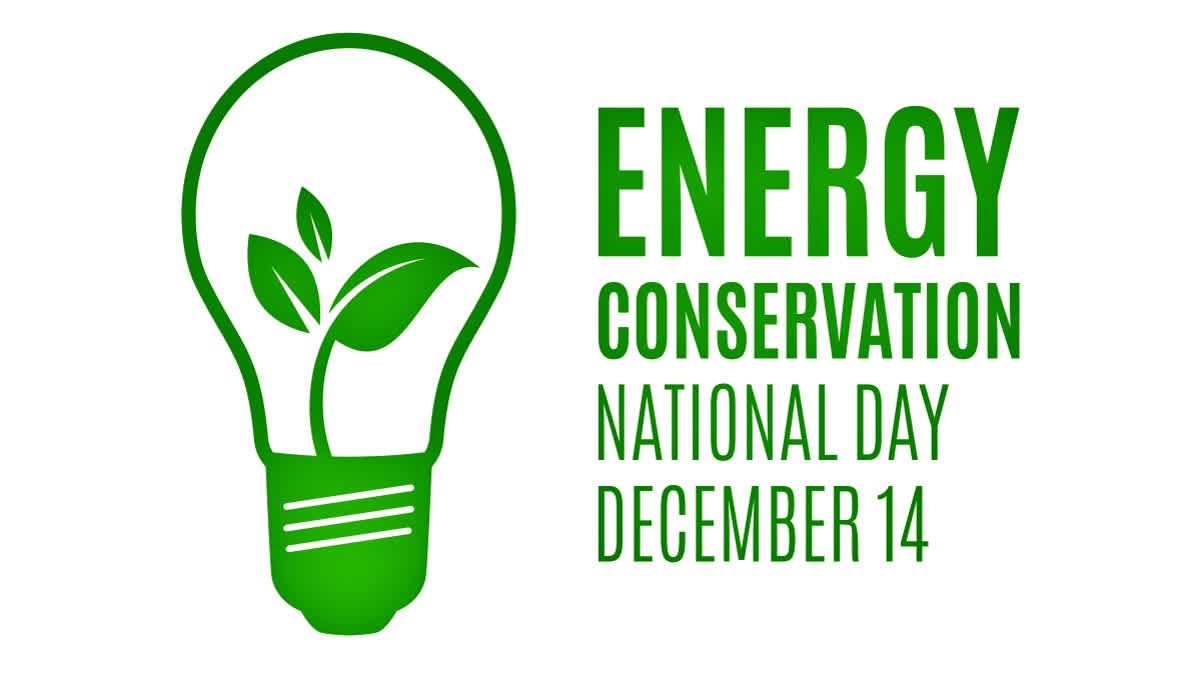Hyderabad: World Energy Conservation Day, observed annually on December 14, is a global initiative involving 150 countries, 5200 cities, and millions of individuals to underline the significance of energy consumption in our daily lives, emphasising its scarcity and impact on global ecosystems' sustainability.
The day catalyses decision-makers to allocate resources to scale up energy generation from non-conventional sources. These sources, including wind, hydel (large, mini, and micro), biomass, biogas, biodiesel, geothermal, tidal, solar, and nuclear fusion, hold the promise of becoming future carbon-neutral energy providers. However, the costs associated with most non-conventional energy forms, except hydel and wind, remain relatively high.
Objective- The objectives of this day include conveying the message of energy conservation's vital role in all aspects of life, and creating the process of energy conservation through various events such as discussions, conferences, debates, workshops, and competitions. Encouraging people to minimise energy usage, discourage wasteful practices, and promote efficient energy use are crucial goals. Also, there is a focus on enhancing energy efficiency in buildings, vehicles, and appliances to contribute significantly to reducing climate pollution.
What is Energy Conservation? Energy conservation is reducing wasteful energy consumption by using fewer energy services. This can be done by using energy more effectively (using less energy for continuous service) or changing one's behaviour to use less service (for example, by driving less). Energy conservation can be achieved through efficient energy use, which has some advantages, including a reduction in greenhouse gas emissions and a smaller carbon footprint, as well as cost, water, and energy savings.
Energy Conservation Act- India implemented the Energy Conservation Act in 2001. The Bureau of Energy Efficiency (BEE), a governmental body, plays a pivotal role in developing policies and strategies to reduce energy consumption. World Energy Conservation Day in India is dedicated to raising awareness about energy's importance and promoting energy-efficient practices, urging individuals to embrace frugality in energy use.
Energy Conservation in India- Considering India's energy landscape, it has made substantial strides, becoming the third-largest energy consumer globally, following China and the United States. With nearly 6% of world energy consumption, India's progress is evident in economic development, energy access and security, and environmental sustainability. Government-led initiatives, such as the renewable energy expansion program targeting 275 GW by 2027, have played a pivotal role in this advancement.
According to the World Economic Forum (WEF) annual rankings, India has moved up two places and secured the 74th position on the global Energy Transition Index (ETI) after improvements in all key parameters of economic growth, energy security and environmental sustainability.
Challenges- Despite these achievements, challenges persist, exacerbated by the COVID-19 pandemic. Global energy demand has seen a significant decline, accompanied by oil price volatilities and geopolitical implications. Investments and projects in the energy sector have faced delays or cancellations, creating uncertainties in employment prospects for millions of workers.
While commendable progress has been made, the challenges, especially those intensified by the pandemic, highlight the importance of ongoing efforts to ensure a resilient and sustainable energy future.



